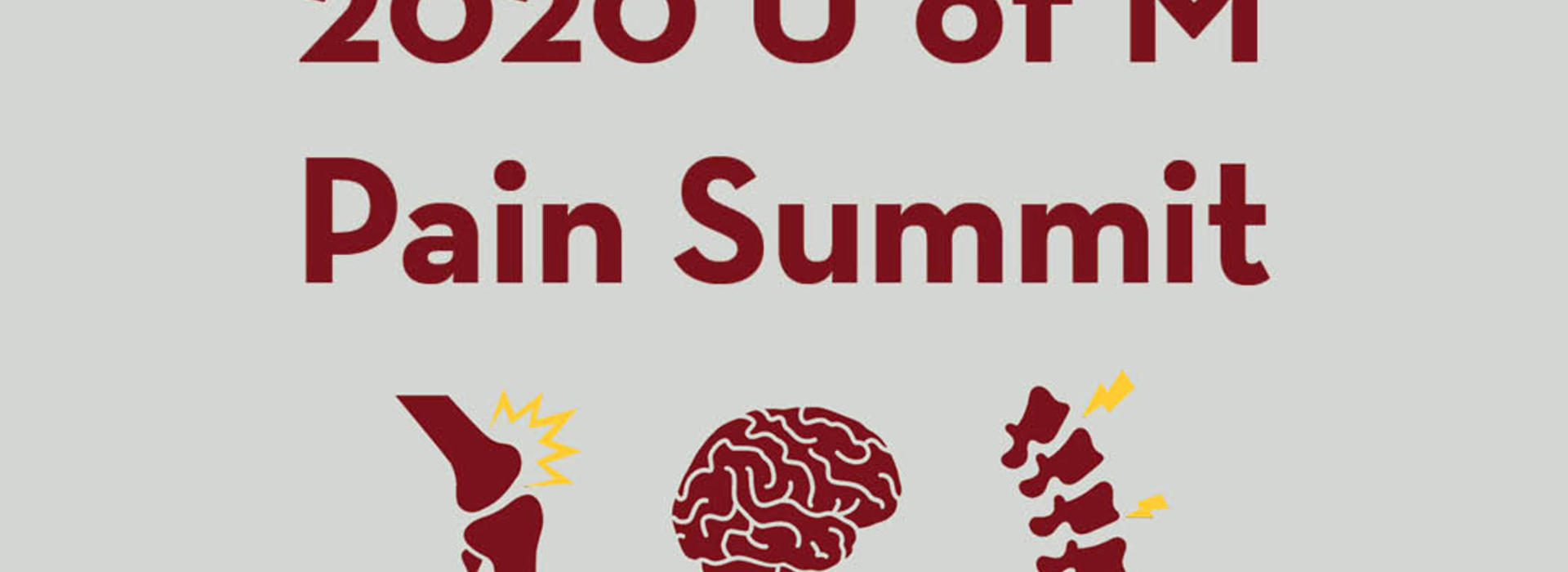
Faculty Across the University of Minnesota Focus on Pain Research and Management
Most people know someone with either back pain, arthritis or migraine. Pain can impact all of us at certain points in time, but for some, it can be chronic, debilitating and insufferable. That’s why faculty across the University of Minnesota have a history of studying the basic mechanisms of pain and are working to advance pain management in safe and effective ways.
Pain can be studied and treated across different fields of medicine, including neuroscience, anesthesiology, dentistry, pharmacology and rehabilitation medicine, among many others. The U of M Pain Consortium combines a dozen research labs with an ultimate goal of finding improved treatments that bypass the addiction pathways. The Pain Consortium already delivers an incredible foundation for those interested in the topic. It provides journal clubs, a pain course with the Karolinska Institute in Sweden and many other valuable resources.
Two particular examples come from the work of George Wilcox, PhD, professor in the Department of Neuroscience, and Carolyn Fairbanks, PhD, associate dean for research with the College of Pharmacy. They are working to develop non-addictive painkillers that target the neurotransmitter, agmatine. This transmitter blocks certain receptors in the brain and acts like a neurotransmitter. Increasing or reducing it works similarly to turning the volume control on a speaker.
They are also studying the potential of a common diarrhea drug, Loperamide, colloquially known as Imodium. There are three types of opioid receptors and Immodium binds to one of them. It is normally not effective against pain. However, in combination with a drug that targets another type of opioid receptor, they synergize, meaning you can take less to receive pain relief. In addition, Imodium doesn’t cross the blood brain barrier, it’s nonaddictive and does not inhibit respiration, thus reducing the potential for an overdose.
These two examples of preclinical development may translate to future treatments, but it takes time and collaboration to bring any effective therapy to market.
Bringing Experts Together
Mike Wall, MD, FCCM, JJ Buckley professor and head of the Department of Anesthesiology, is working to recruit a second basic scientist in pain research. “We want to find people that are ‘force multipliers.’ People that bring a talent to the University that we don’t already have, but who also fit right in,” Dr. Wall said.
Pain research is expanding at the U of M, but this means nothing if it doesn’t translate into clinical care or if faculty aren’t aware of each other's work. Laura Stone, PhD, a professor in the Department of Anesthesiology, is working to foster collaboration through the 2020 Pain Summit.
“I think the environment here is primed for this. We need to facilitate these interactions and promote collaboration between clinicians and basic scientists. In order for clinically useful translation to happen, we need teams with really diverse knowledge,” Dr. Stone said.
Dr. Wall reiterated a similar sentiment, saying, “We’re integrated across the clinical spectrum with M Health Fairview and the VA, so now we’re trying to develop the pain interest group to bring our experts together. Since we already have really strong acute and chronic pain management physicians, we know that’s where the translation part can go.”
In conjunction with their regular work, faculty can make an immediate impact by participating in the 2020 Pain Summit. It is an informal event with no established expectations that will allow the U of M community to grow. Participants will learn about their colleagues’ work and gain new perspectives.
“There are a lot of people here doing really great work that may not be aware of their colleagues’ efforts, and the Pain Summit came out of that. We hope to connect the basic scientists with different people, including clinicians, molecular scientists and others,” Dr. Stone said.
The registration deadline for the 2020 Pain Summit is September 1. It will be held on Friday, September 11 (afternoon) and Saturday, September 12 (morning).